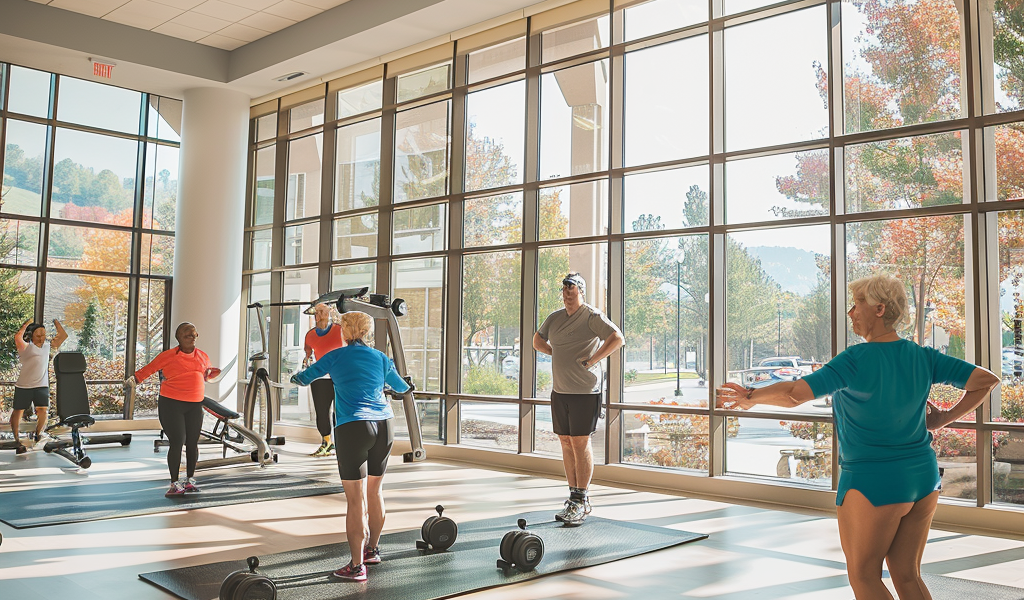As individuals age, maintaining physical health and strength becomes increasingly important. Recent studies have highlighted the significance of strength training for seniors, demonstrating its vital role in preserving muscle mass and overall physical abilities. With age, muscle density naturally declines, which can lead to decreased mobility and increased risk of injury. However, engaging in regular strength training can counteract these effects, allowing seniors to maintain their independence and enhance their quality of life.
Personal trainers across various fitness centers are advocating for strength training as an essential component of senior fitness programs. For instance, Eric Felders, a personal trainer at Franciscan Health Fitness Center in Chesterton, emphasizes the importance of tailored exercise routines that cater to the unique needs of older adults. He notes that strength training not only helps in building muscle but also improves balance, coordination, and bone density.
At Community Hospital Fitness Pointe, trainer Ken Croner demonstrates effective exercises, such as the dumbbell squat to press, which combines lower body and upper body strength training. This exercise not only strengthens the legs but also engages the core and arms, making it a comprehensive workout option for seniors. The squat portion of the exercise focuses on proper form, ensuring that seniors can perform it safely and effectively.
Another effective exercise recommended by trainers is the chair squat, demonstrated by Eric White, a personal trainer and regional coach for several Anytime Fitness locations. This exercise is particularly beneficial for seniors as it allows them to practice squatting with the support of a chair, reducing the risk of falls. White guides his clients through the movement, emphasizing the importance of keeping thighs parallel to the ground and pushing hips back, which helps in building lower body strength while maintaining safety.
Research continues to support the benefits of strength training for older adults. A growing body of evidence suggests that engaging in strength exercises can lead to improvements in physical performance, enhance cognitive function, and even contribute to better mental health. The psychological benefits, including improved self-esteem and reduced feelings of anxiety and depression, are particularly valuable for seniors who may face social isolation.
Fitness facilities are increasingly recognizing the need for specialized programs aimed at older adults. These programs often include a mix of strength training, flexibility exercises, and cardiovascular workouts, all designed to support the unique needs of seniors. By fostering a supportive environment, fitness centers can encourage older adults to stay active and engaged in their health journeys.
Moreover, community initiatives and workshops focused on senior fitness are becoming more prevalent. These programs not only provide valuable information about the benefits of strength training but also offer hands-on guidance from certified trainers. Participants learn about proper techniques and modifications that can make exercises more accessible, ensuring that everyone can participate regardless of their fitness level.
Incorporating strength training into a regular fitness routine can be a game-changer for seniors. It is essential for older adults to consult with healthcare professionals before starting any new exercise program, particularly if they have pre-existing health conditions. Trainers can help design personalized workout plans that align with individual health goals and capabilities, ensuring a safe and effective approach to fitness.
As the conversation around senior fitness continues to evolve, the importance of strength training is becoming increasingly clear. With the right guidance and support, older adults can embrace strength training as a powerful tool to enhance their physical health, maintain independence, and enjoy a fulfilling lifestyle.





